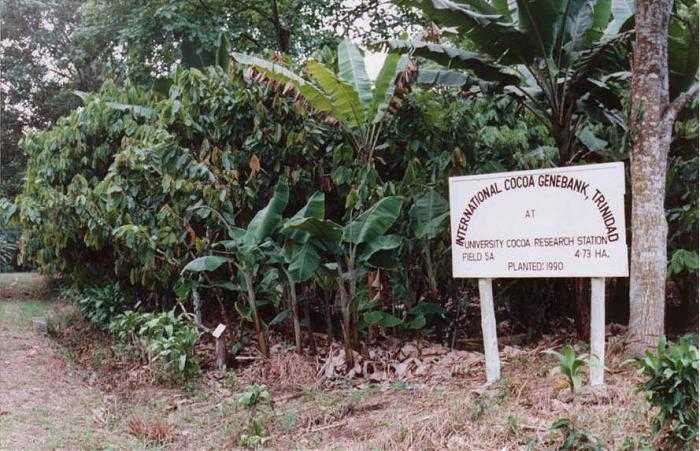The Multilateral Investment Fund (MIF), a member of the Inter-American Development Bank (IDB) Group, has approved a US$750,000 grant for a project focused on strengthening cocoa production in Trinidad and Tobago.
The project will be executed and co-financed by the Cocoa Research Centre of the University of the West Indies.
Trinidad and Tobago has a long and rich heritage of cocoa production. The local cocoa industry consists of approximately 1,500 registered farmers, the majority of which operate at a small scale.
The country enjoys comparative advantages that include its status as an exclusive fine cocoa producer, its quality reputation, and its historical legacy as the place of origin of the Trinitario cocoa variety, a hybrid regarded for its superior yield, excellent flavor and resistance to diseases.
Despite these advantages, the cocoa sector has been operating well below potential for many years. In 1920, at the height of the industry, Trinidad and Tobago produced 34,000 metric tons of cocoa, compared to just 500 metric tons today.
This long-term decline is the result of various factors, but is directly tied to high levels of government regulation and an outdated supply chain structure that delivers low prices to farmers.
In the context of a newly liberalized cocoa sector, the project is a pilot initiative that aims to revitalize and transform the entire industry by building an inclusive supply chain to connect farmers to high value markets.
It will build capacity to increase farm productivity, implement quality certifications and traceability systems, and raise the profile of Trinidad and Tobago cocoa in national and international markets.
The project as envisaged will create new opportunities for low-income communities and will improve market access for farmers.
Over three years the intervention will benefit a network of 40 farms, 10 fermentaries and buying agents, and 100 laborers through training in sustainable farm management, traceability, and quality control systems.
The project will pilot a new private-sector business model in which farmers will partner with the country’s first and only chocolate factory to export processed cocoa to buyers in high-value markets.
The proposed model is particularly suited to small-scale cocoa production, which if produced in steady quantities with consistent flavor, can capture premium pricing from specialty buyers.
This approach is innovative for Trinidad and Tobago because it serves as a pivotal shift for an industry that was under government control for over 50 years and now needs an improved value chain model to deliver more returns to farmers.
By piloting an improved supply chain and marketing model accompanied by traceability and internationally equivalent quality standards, the entire industry stands to benefit from improved prices and better positioning of Trinidad and Tobago cocoa.
About the MIF
The Multilateral Investment Fund is the innovation lab for the Inter-American Development Bank Group. It conducts high-risk experiments to test new models for engaging and inspiring the private sector to solve economic development problems in Latin America and the Caribbean.
The MIF addresses poverty and vulnerability by focusing on emerging businesses and smallholder farmers with the capacity to grow and create economic opportunities. Learn more at www.fomin.org.
About the Cocoa Research Centre of the University of the West Indies
The mission of the Cocoa Research Centre, based at the University of the West Indies in St. Augustine, Trinidad, is to support the sustainability of the cocoa sector through management of genetic resources, research, innovation and outreach.
It does this through maintaining a diverse, representative and well-curated field collection of cocoa genetic resources; creating a learning environment of global excellence; supporting public policy and decision making with respect to cocoa industries in the region; developing an innovation-oriented research program capable of spawning competitive industries; and developing a strong outreach program by serving as a portal to all the University’s resources to support the regional and international cocoa industries.
For more information, visit https://sta.uwi.edu/cru/.
















